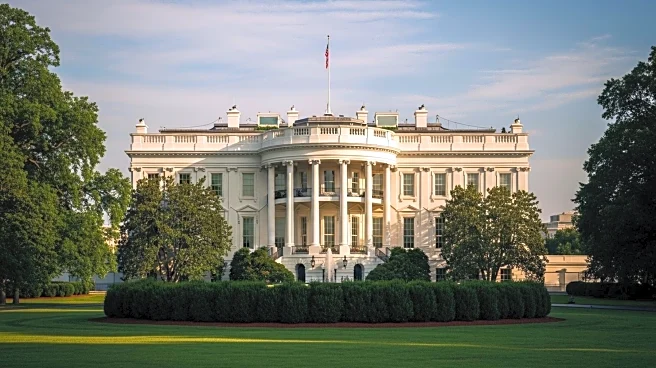What's Happening?
The White House, under President Trump's administration, is conducting a review of the Smithsonian Institution's public-facing content. This review aims to align the Smithsonian's materials with a vision of American history that emphasizes 'American exceptionalism' and removes 'divisive or partisan narratives.' The review could significantly affect how history is taught in classrooms across the United States, as many educators, like high school history teacher Katharina Matro, rely on the Smithsonian's resources for teaching topics such as genocide and slavery. The review is part of a broader initiative that includes the launch of the White House's Founders Museum, in partnership with PragerU, which presents a more sanitized version of American history. Critics, including educators and historians, express concern that this could lead to a less comprehensive understanding of the nation's past.
Why It's Important?
The review of the Smithsonian's content by the White House holds significant implications for education in the U.S. The Smithsonian is a key provider of educational materials, and changes to its content could influence the historical narratives presented in classrooms nationwide. This move is part of a larger trend of political influence in educational content, which could lead to a more one-sided portrayal of history. Educators fear that this could diminish the quality of history education, particularly in addressing complex and sensitive topics. The potential shift in educational resources may also impact students' engagement with history, especially among underrepresented groups, and could discourage them from pursuing careers in related fields.
What's Next?
As the review progresses, educators and professional groups are likely to continue seeking alternative resources to ensure a balanced historical education. The outcome of the review could prompt reactions from educational institutions, historians, and civil society groups advocating for comprehensive and inclusive historical narratives. The broader educational community may also push back against any perceived politicization of educational content, emphasizing the importance of maintaining academic integrity and historical accuracy.
Beyond the Headlines
The review raises ethical and cultural concerns about the role of government in shaping educational content. It highlights the ongoing debate over how history should be taught and the potential consequences of presenting a singular narrative. The situation underscores the importance of preserving diverse perspectives in historical education to foster critical thinking and understanding among students.











